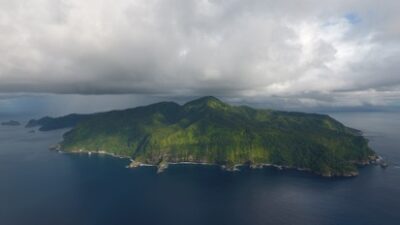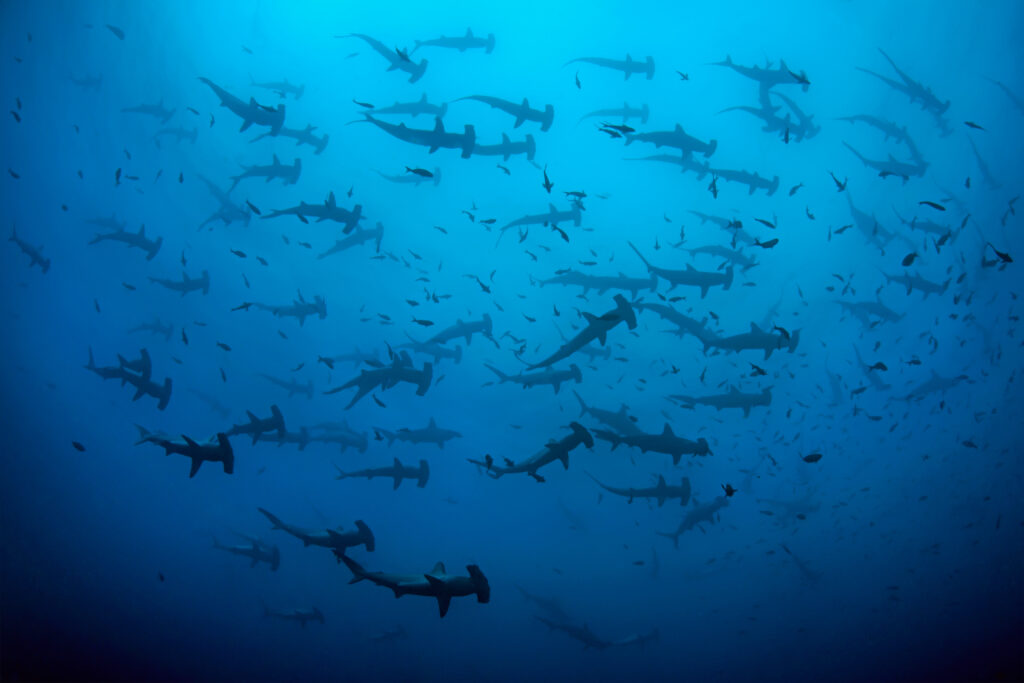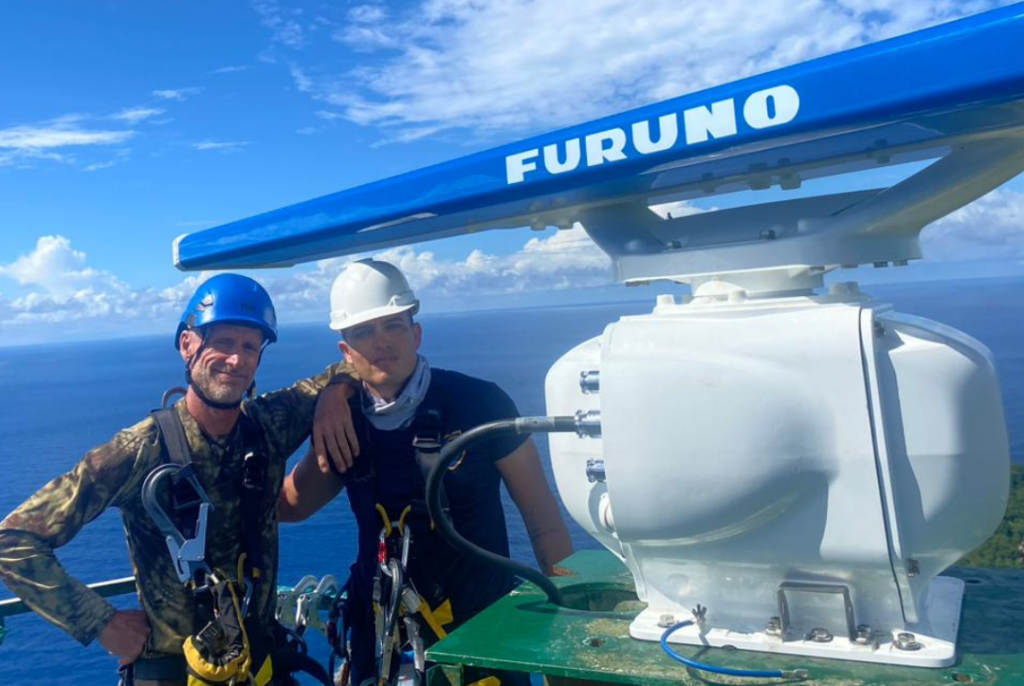
A dramatic decline in illegal, unreported, and unregulated (IUU) fishing around Costa Rica’s Cocos Island marks the success of a multi-faceted Marine Protection System (MPS) developed by WildAid and its partners.
Cocos Island National Park (CINP), a UNESCO World Heritage Site covering 54,844 square kilometers—slightly larger than the entire land area of Costa Rica and roughly twice the size of Vermont—of vibrant ocean habitat, lies 500 kilometers off Costa Rica’s Pacific coast and famously inspired the movie Jurassic Park. This ecological sanctuary, home to iconic species like hammerhead sharks, whale sharks, and giant manta rays, has long been a target for illegal fishing due to its abundant marine resources. Recent data, however, reveals a dramatic shift.
According to satellite data provided by Global Fishing Watch, apparent fishing efforts around Cocos Island dropped from 5,587 total vessel hours during January – August 2023 to just 67 hours during the same period in 2024. Notably, there were zero hours of apparent fishing efforts recorded between August 1st and August 28th, 2024.
This positive result reflects strengthened enforcement capabilities, including a newly installed radar system. Coupled with WildAid’s communications about these new enforcement measures, the system is deterring would-be illegal fishers from entering Cocos’ protected waters.
At the Costa Rican government’s invitation in 2022, WildAid and a network of key partners, including Friends of Cocos Island Foundation (FAICO), Global Conservation, and the Costa Rican Coast Guard, worked to create and implement a sophisticated protection system for the Area de Conservacion Marina Coco (ACMC). The system incorporates training, partnerships, and improved infrastructure to bolster marine enforcement capabilities in one of the world’s most biologically rich marine ecosystems.


A Multi-Technology Approach to Marine Surveillance
Responding to this challenge, WildAid and its partners developed a comprehensive MPS plan, including advanced monitoring, increased training, and local engagement. The first step was establishing a fully operational Command and Control Center for the ACMC in 2023. This center enhances coordination and supports a suite of advanced tracking technologies, ensuring continuous, 24/7 monitoring of CINP’s waters.
This setup was completed in 2024 with the installation of a long-range radar. Funded by Global Conservation and installed with logistical support from Earthrace and the Costa Rican Coast Guard, this radar allows 24/7 monitoring and fills critical gaps in the island’s surveillance capabilities. Integrated with platforms such as Dark Vessel Detection (DVD)—provided by Fisheries and Oceans Canada (DFO)—Global Fishing Watch (GFW), and Themis, this multi-layered and multi-technology setup enables authorities to track and intercept unauthorized vessels in real-time, even in challenging detection zones and even when those vessels do not use any system to voluntarily report their position, such as the Automatic Identification System (AIS).


Collaborative Partnerships and Capacity Building
WildAid’s approach emphasizes collaboration and capacity building to ensure long-term impact. Training initiatives for ACMC’s marine unit personnel have been pivotal, equipping them with skills to use satellite monitoring systems and other tools like Themis and GFW effectively. In 2023, WildAid organized a peer-to-peer exchange between Costa Rican rangers and their counterparts in the Galapagos, allowing ACMC staff to gain insights into the Galapagos’ own control and surveillance systems. This hands-on experience has helped refine ACMC’s operational protocols and build a model for effective marine conservation that can be adapted to Cocos Island.
Furthermore, in addition to advanced technology, continuous communications and outreach through media and social platforms have highlighted the strengthened vigilance around Cocos, reinforcing Costa Rica’s commitment to marine protection.


Looking Ahead: A Model for Global Marine Conservation
The combined efforts of WildAid and its partners underscore the potential of a well-coordinated marine protection strategy. By integrating cutting-edge technology, fostering collaboration, and building local capacity, Costa Rica and WildAid are setting a new standard for marine conservation. WildAid and its partners look forward to building on this momentum, aiming to sustain and expand these protections so that Costa Rica’s iconic Cocos Island remains a refuge for marine life for decades to come.
Stay in touch and get the latest WildAid updates.
SIGN UP